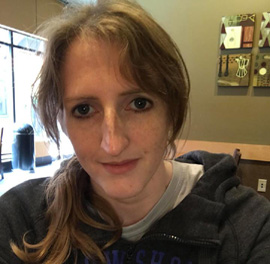Research is essential for any novel set in a particular time frame. Slang is the fastest anachronistic reveal if you have 80s era jargon showing up in a 60s-set novel. It applies to more than just language, though. Go to any period-movie on IMDB, and check the "Goofs" section. You'll find everything under the sun -- a vehicle showing up before it was chronologically made; colour TV before there was coloured TV; a radio broadcast given days/months/years after it aired.
And I think, for that reason, alternate timelines are so appealing.
Authors can eliminate a key element of history, while developing others. Take Steampunk, for instance. As a genre, Steampunk thrives on pulling 20th Century technology and seating it in the Victorian era. But Steampunk accomplishes this by stripping the designs down to the very basic concepts, and putting them back together in a time-functional, practical box. Just take a look at some of the gadgets people have created.
Even to create such masterful gadgets, enthusiasts do their research to know what works for the time frame, and what doesn't. Devices that require projections -- computers and televisions -- still work, but they aren't (or shouldn't be, rather) as transportable as they are today.
But the story still functions.
That's what I aim to do with Uncertain Heirs -- create an alternate timeline where zeppelins, trains, and horse-drawn carriages are still the major modes of transportation, but seat it in a parallel time frame. My estimated year for the novel is 2015, but the history I've created implies a stronger tie to the earth than to technological advancement. Even though they've had the time to advance technologically, they haven't, because they haven't had the need for it like we have. Yes, they have things like the wire, which is their version of the telephone, but it is only used for extreme situations. Letter is still the preferred method of correspondence. Closed wire does appear in a mobile form, but when I say mobile I mean literally it exists only in the carriages for passengers to give orders to the driver.
This works, but it's similar to the tin can and string method, except that it's in this case a tube and funnel. It's very limited. Now radio, there's something fun to play with! I like to imagine that with some technologies, they're about 75-100 years behind us. So since radio has existed in our world since 1906 (first AM broadcast), it's feasible that radio has cropped up by the 1980s in their world. Think of it like this: we had the internet boom around this time, so too did they have the radio boom. Give it another 50-60 years in story, and they'll have the first personalized TVs, and so on.
By now you've probably wondered how much time I spend world-building for a story. I'll tell you -- I go so far as to create sample dinner invitations, just so I understand the habits and customs of my characters. The more I know the world, the better I can write it.
Subscribe to:
Post Comments (Atom)
______________________________________________________________________
 |
Ash Litton is a writer and lover of sci-fi, fantasy, and all things fictional. She is the author of Thoroughbred, Evening Hallow, Comeuppance, and Cabover Cabaret, and works on other Appalachian Dream Tales between her ongoing novel projects. She's also written No Diet, No Surgery, No Sweat, an ebook chronicling her weight-loss journey. When she's not writing, she's drawing, and when she's not doing either of those, she's dreaming up new projects to work on. Born and raised in rural West Virginia, Ash has always wondered what things lay hidden in the hills around her. She attended West Virginia University, where she studied the English language before returning home to her family in rural West Virginia. |
No comments:
Post a Comment